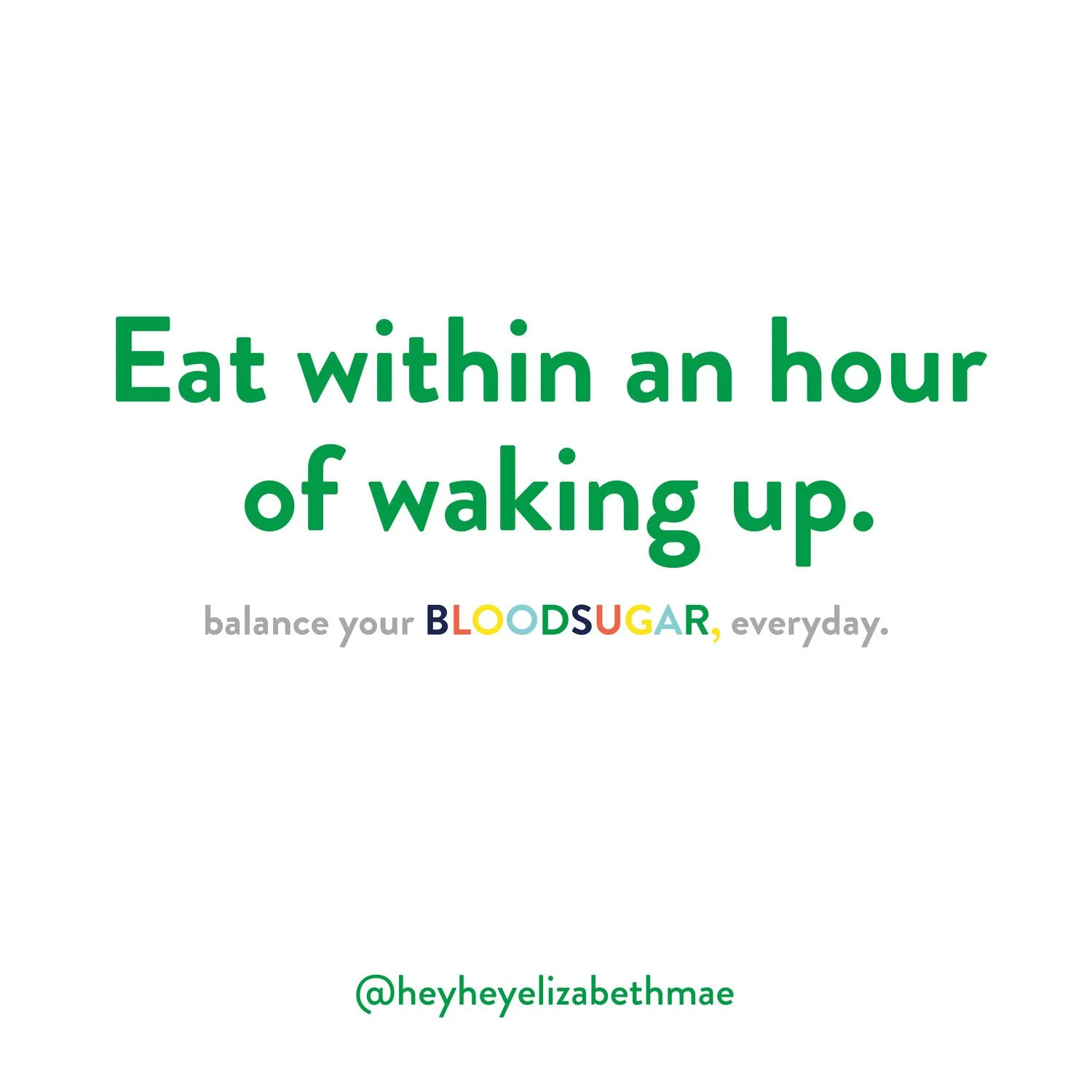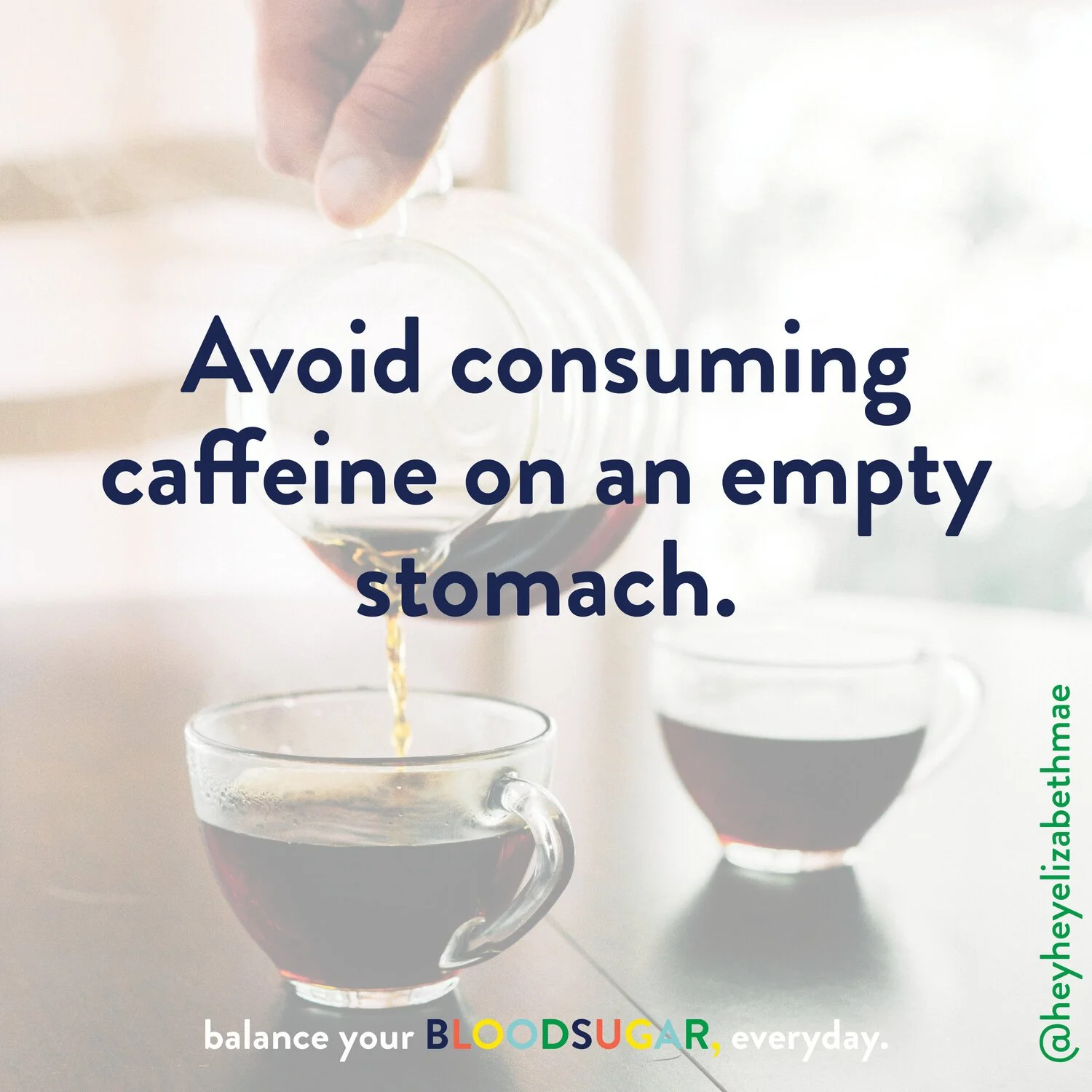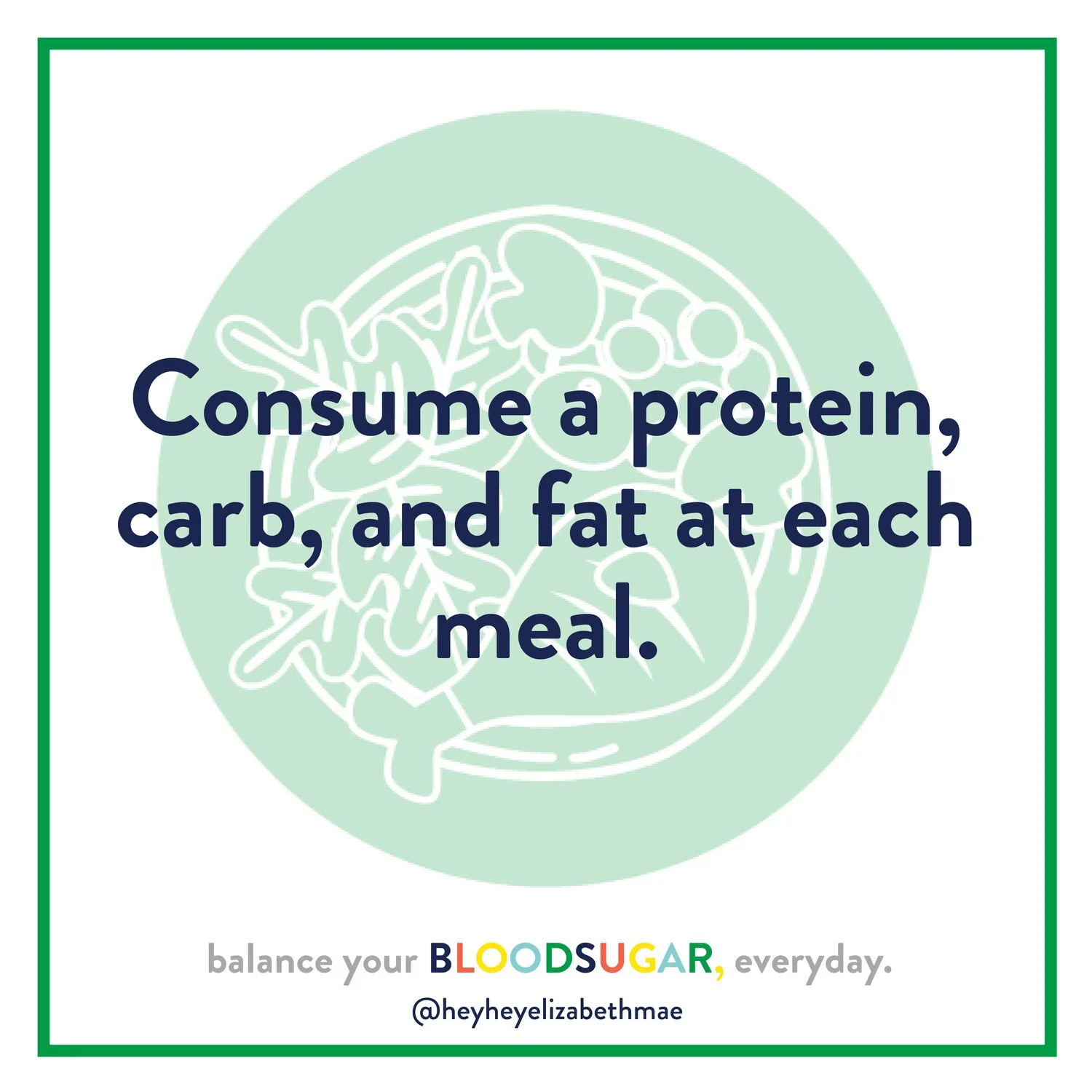Lifestyle Tips to Support Blood Sugar Balance...Without Turning Your World Upside Down
In my previous posts I’ve talked a lot about the WHY behind blood sugar regulation and its importance as a foundation to our overall health. The why is always important, but this post is dedicated to the HOW.
How can I live my life and support blood sugar balance every day? How can I make it easy, so it’s just something that I do? I’ve got you, keep reading.
Easy day to day tips to implement:
Eat within an hour of waking up. This is one of the best ways to start the day with balanced blood sugar. Most of us get 7-9 hours of sleep each night. In order to stay asleep our body uses excess blood sugar and stored glucose for energy to perform body processes (such as digestion) as we sleep. This leaves our energy stores tanked when we wake up. Ensuring we eat a balanced breakfast within an hour of waking provides us with the energy we need to start the day.
Avoid consuming caffeine on an empty stomach. The body requires energy to process caffeine. If we drink a cup of coffee in the morning on an empty stomach, we essentially don’t have the energy required to properly process caffeine. This can lead to feeling jittery and lightheaded. Wait until after breakfast to enjoy your cup of coffee. That way the body has enough protein, fat, and carbs to process the caffeine appropriately.
Consume a protein, carb, and fat at each meal. Bonus for some leafy greens in there, too! Macronutrients work synergistically when consumed together. Carbohydrates provide quick energy and fuel for the brain and liver, protein provides bulk to our meals and when broken down into amino acids gives us the building blocks for tissues and cells, and fat helps to slow the absorption from glucose (carbs) to make us feel full for longer. Consuming each of these at every meal and snack helps us feel full and stabilize blood sugar.
Snacks aren’t the enemy! See my full blog post on snacking and grab my Ultimate GF/DF Snack Guide here.
Reduce stress. What? How does stress have anything to do with balancing my blood sugar? Sis, it has everything to do with it! Stress increases the burden on the adrenal glands and the liver to pump out cortisol and release stored glucose into the bloodstream for usable energy. Chronic stress drives inflammation in the body and can tank our blood sugar stores. Any of the above tips can help reduce stress.
Get enough sleep. Without enough sleep the body is unable to rest and digest properly. In addition, many important body processes take place when we are sleeping. Lack of adequate sleep can also increase our cravings for sugar and caffeine-- a call from the body for energy.
Exercise. Exercise increases muscle sensitivity to insulin. We want to be very sensitive to insulin (the hormone secreted when glucose is in the bloodstream). Insulin tells our muscles, liver, and adipose tissue to uptake glucose to avoid high blood sugar levels.
If you feel like you are doing all the things and still struggling with symptoms of blood sugar imbalance such as:
Increased cravings for sugar and refined carbs
Increased hunger
Lack of satiation from meals
Weight gain
Increased blood pressure
Binge or uncontrolled eating
Fatigue or low energy
Difficulty losing weight
Cravings for sugar and caffeine in the afternoon
Lightheaded, irritable, shaky or headaches if meals are skipped (AKA hangry)
Consistently waking up in the middle of the night
Then it might be time to dig a little deeper.
An overgrowth of opportunistic (bad) bacteria in the gut such as candida can drive cravings and blood sugar imbalance. A comprehensive GI MAP and/or MRT Food Sensitivity test can uncover any gut infections that may be contributing to blood sugar imbalances. Curious about the GI MAP? Let’s schedule a clarity call and see if it’s right for you!
Not ready to work 1:1 with a practitioner, but want more information? Check out my 21 Day Blood Sugar Reset Purification Program. This program is guided by me, an FNTP, and focuses on nutrient-dense, whole foods + high-quality food based supplementation to support your body as you reset, detox the chemicals and additives from processed foods, and rebalance blood sugar.
Lastly, stay tuned for the launch of my new course dedicated to balancing blood sugar, That Smoothie Life: Eat for Balanced Blood Sugar. In this course we unpack your cravings, review the hormones and organs involved in regulating blood sugar, learn all about the HPA Axis, how blood sugar impacts digestion and sleep, why blood sugar regulation matters, and how to eat to balance blood sugar. Also included are my favorite supplements and lifestyle factors to support blood sugar balance AND I’ve included a bonus module with blood sugar support for kiddos!



